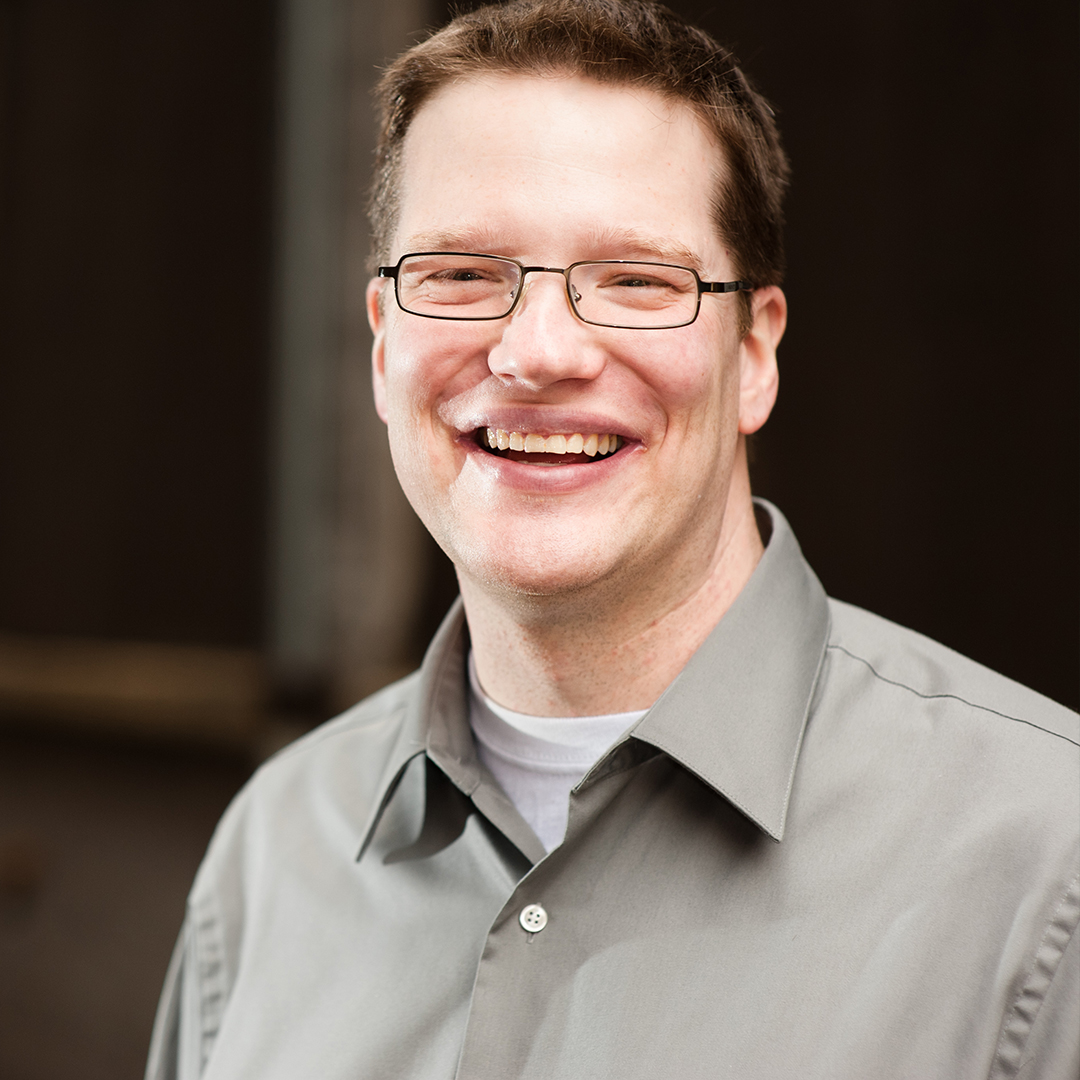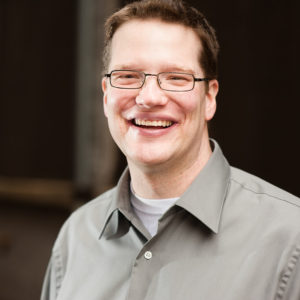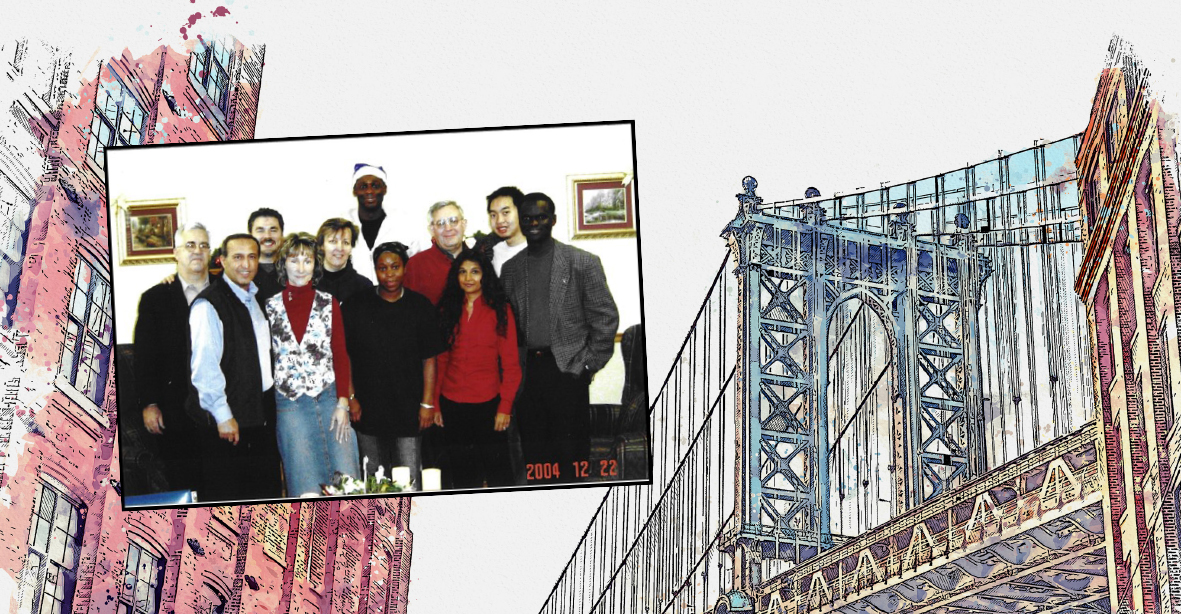
Jeff Finley
Light + Life Executive Editor
Jeff Finley is this magazine’s executive editor. He joined the LIGHT + LIFE team in 2011 after a dozen years of reporting and editing for Sun-Times Media. He is a member of John Wesley Free Methodist Church where his wife, Jen, serves as the lead pastor.
by Jeff Finely
Howard Olver was born in the Catskill Mountains hamlet of Maplecrest, New York, and he spent part of his childhood in rural Pennsylvania, but he gained plenty of urban experience after his father ended a term as a conference superintendent and became the pastor of the First Free Methodist Church on 16th Street in New York City’s Brooklyn borough.
“I grew up there for six years, grades five through eleven, and then he was elected superintendent [again], and we moved back to Pennsylvania,” Olver said in an interview with LIGHT + LIFE. “Grades five through eleven are probably some of the most formative years of your life, and certainly living there planted the seed that later came to fruition when God called me to the city.
“As sort of a typical preacher’s kid, I really had a love-hate relationship with the ministry and the church,” he said. “While I went to Roberts Wesleyan College, I fought with God almost constantly over feeling called to the ministry until I finally said yes in my senior year.”
He then attended Asbury Theological Seminary, and, Olver said, he “then began to wrestle with God’s call to the city, and it was intense, and I have to say that my call to urban ministry was as compelling and as clear as anybody’s call to the mission field.”
Back to Brooklyn
Olver said he felt specifically “called to go back to Brooklyn, and so, 10 years after I moved away, I came back as the pastor at age 24 — fresh out of seminary in Wilmore, Kentucky. If I had not grown up there, if I had not had those six years of living there, I would have never survived.”
Ministry in Brooklyn was challenging, and Olver said the church “building was in absolutely disastrous condition.” After a year there, the church lost use of the main sanctuary that was upstairs. Olver explained, “A windstorm came up and literally blew the glass out of the windows. They were so rotten, and so we just boarded up the windows, and, fortunately, there was a ground floor that had what was called the Sunday school auditorium from back in the day when Sunday school basically was taught to the whole group at once.”
A denominational executive visited New York and asked Olver, “Howard, how long are you going to waste your life in a place like Brooklyn?” Olver didn’t reply out loud with the response in his head: “Where do you go from here? There is no greater mission field than New York, and you’re asking me why I am wasting my life here.”
Unlike that executive, however, Olver learned from “a true prophet in the Free Methodist Church” who “challenged the status quo” and understood the need for urban ministry among people of different races and ethnicities.
“There was a department of interracial evangelism led by Gilbert James in the late ’40s and into the early ’50s,” said Olver, who noted James’ efforts led to a church and school primarily serving African Americans in Shreveport, Louisiana. “Gilbert James had a huge impact on my life. He was the professor of church and society at Asbury while I was there, and it was in a January interterm class on community research techniques that he led in Minneapolis-St. Paul that I made the decision to say yes to God about going to the city and going back to Brooklyn, and he actually spent several interterms in Brooklyn bringing students to be involved in ministries that we were involved in.”
The church eventually secured funding for a total rehab of the building, but in the middle of the building work, Olver said, “the superintendent came to me and said, ‘Howard, we want you to move to Passaic, New Jersey.’”
The church plant in Passaic faced difficulties. Olver had previously turned down offers to go there, but the superintendent told him, “You can’t say no this time. We are going to move you.”
Olver said that despite moving to New Jersey against his will, “it turned out to be an amazing time. The church just really exploded. Almost immediately, we began a second service in Spanish. Hector Fernandez, who is still the pastor there, was my associate pastor.”
His staff also included John and (now Bishop) Linda Adams. Olver said, “Linda was our youth director, and obviously she’s gone on to do pretty well.”
Olver said the church “desperately needed a building,” and “God enabled us to purchase what had been the public service electric and gas office building — 20,000 square feet right smack in the middle of the city of Passaic on Main Avenue, and you can see the skyline of Manhattan in the background.”
Olver said that after he left, the church multiplied with the English-speaking service becoming Crossroads Church in Clifton, New Jersey, and planting multiple churches. The remaining congregation, the First Spanish Free Methodist Church of Passaic (Primera Iglesia Metodista Libre de Passaic), is now the largest Protestant church in the city of Passaic and attracts more than 1,000 people to Easter services.
Hector Lora, now Passaic’s mayor and a Free Methodist elder, committed his life to Christ at the church.
“We were in Brooklyn for 11 years and then in Passaic for four or five and basically burned out and decided to take a leave of absence,” said Olver, who accepted an invitation to move across the country and work for an extended family member’s printing company in Los Angeles. “I found out that I was addicted to ministry and to stress.”
He began pursuing a master’s degree in cross-cultural studies at Fuller Theological Seminary. Meanwhile his printing work included handling the account of the Salvation Army Western Territory. He became friends with the territory’s director of intercultural ministry, who interrupted one conversation about printing to say, “Howard, God did not call you to sell printing. God called you to reach people and to build His church.”
Midwest Ministry
He and his wife, Linda, discussed a return to ministry in New York, but they couldn’t find an appropriate place for them and their young teen daughter and son. He attended the Continental Urban Exchange in Oklahoma City, and Pastor Mark Van Valin talked to him about the Lighthouse Free Methodist Church in St. Louis. The Gateway Conference superintendent called later, and the couple visited St. Louis in 1989 and sensed God wanted them there.
“We were there for five years, and I’ll tell you it was the five toughest years of ministry that I’ve ever put in. It was so intense that I would say a year there was probably equal to three to five years ministry anyplace else,” Olver said.
Around the same time the family moved to Missouri, the Bloods and the Crips began engaging in gang warfare across north St. Louis. Families fled that part of St. Louis and moved south to the city’s central corridor that included the Tower Grove area, home to Lighthouse.
“The gangs came with them, and it created a whole volatile situation. At one point, we had 11 shootings in two weeks just on the block where the church is located, and that summer a fourth of the congregation left and a third of the board,” he said. “One after another said, ‘We believe in this church, and we believe in your ministry, but we can’t stay here.’”
The exiting members tended to be the best-educated people who provided much of the financial support for the church. Despite a loss in membership, the church remained extremely important to the neighborhood.
“The church really functioned as the community center for the whole neighborhood. If there were any community meetings, they happened in our church,” said Olver, who recalled being approached at one meeting by a leading St. Louis politician who told him, “Pastor, if Lighthouse Church closes, you will leave a tremendous spiritual vacuum in the heart of this community.”
Olver reflected, “That was the voice of God. I went home and told my wife, ‘I don’t know what it’s going to take, but we’ve got to find a way to keep this church going, and, through a series of events, we did.”
The neighborhood quickly shifted from evenly divided between Black and White to predominantly Black.
Olver worked part-time doing regional work for the denomination’s department of evangelism and church growth. While attending church growth conferences, he met a Church of God (Anderson, Indiana) church growth consultant with urban experience. She visited Lighthouse and told Olver that unless he wanted the church to close within five years, “You really need to find an African American who understands the city and understands street culture who can work with you.”
Olver recalled, “We began looking and praying, but in those days, Black pastors weren’t very common in our denomination.”
The consultant called him later and said she had just visited a Bible college in Oklahoma, and “I met this guy who I think would be perfect for your church. His name is Kenny Martin, and he is trying to decide right now what direction to go with his life.”
Olver contacted Martin, who moved to St. Louis to become Lighthouse’s assistant pastor.
“Some amazing ministry resulted. Through another series of circumstances, the Board of Education asked us to run the gym that was across the street with Adams School,” said Olver, who added the church was “basically given carte blanche to run whatever we wanted to out of that gym as long as it was for the good of the neighborhood.”
The church also hosted community meetings to discuss the corner store at the other end of the church’s block.
“It had become a gang hangout, and a lot of the shooting had to do with stuff that was going on at that corner store,” said Olver, who recalled receiving a mysterious letter addressed to “Lite House” that stated, “If you don’t leave us alone and leave the corner store alone, we’re going to firebomb the church.”
Police took the threat seriously because a house three blocks away had been firebombed the previous week, but, Olver said, “We did not stop meetings. We kept the pressure up, and within just a matter of weeks, somebody firebombed the corner store, and it’s now a community park.”
After Olver and his wife sensed that Martin should become Lighthouse’s lead pastor, Greenville University offered Olver a part-time faculty position, and conference and denominational leaders also offered him part-time work. Bishop Gerald Bates also persuaded Olver to pursue a Doctor of Ministry degree, which he earned in 1999 with a dissertation titled “Resurrection Strategies for Dying Urban Neighborhood Churches.”
“That period of time was incredible personal growth and development. I was teaching half-time, working with churches half-time, and I was working on my doctorate at the same time, and it was just amazing,” said Olver, who explained that the simultaneous opportunities allowed him to make sense of his urban ministry experience.
Canada and Return to U.S.
In 2000 Oliver accepted an offer from the Free Methodist Church in Canada to become the lead pastor of the Kingsview Church in Toronto that needed a leader with urban, cross-cultural, community ministry experience.
“We were there for 13 years, and we had people from 40 different countries that were part of our church,” Olver said. “Two-thirds of the adults in the church were born outside North America.” The ministry of the church was guided by the statement, “Kingsview Free Methodist Church is a multi-generational and inter-cultural church with a vision for ministry that begins in our community and extends around the world.”
In 2013, Olver moved back to the United States for a two-year term as the Acts 12:24 Conference’s interim assistant superintendent, and then he served for three years as the conference’s director of ministerial education and guidance.
“We took in over a hundred ministerial candidates in the time that I was there,” said Olver, who added Acts 12:24’s growth in new pastors continues with a goal of planting 1,000 churches. “God is calling so many people into ministry, which says to me that God has some great plans for that conference.”
Howard and Linda Olver now reside in a retirement community in the Rochester, New York, area where their son and his family live, and Howard has served for the past two years as the assistant superintendent of African immigrant ministry for the Genesis Conference where he continues his legacy of raising up new leaders.
“The leadership development piece is critical in urban and intercultural ministry, but it’s also critical anywhere,” he said. “Practically the number one job of every pastor is leadership development. That’s the work of ministry, and that’s based on Ephesians 4.”
Olver added, “Proverbs 11:11 sums up God’s call to the city: Through the presence of the upright a city is exalted, but by the mouth of the wicked it is destroyed.”+

Jeff Finley
Light + Life Executive Editor
Jeff Finley is this magazine’s executive editor. He joined the LIGHT + LIFE team in 2011 after a dozen years of reporting and editing for Sun-Times Media. He is a member of John Wesley Free Methodist Church where his wife, Jen, serves as the lead pastor.









